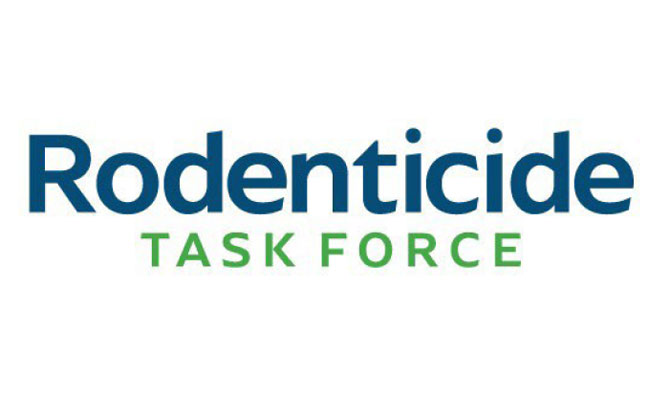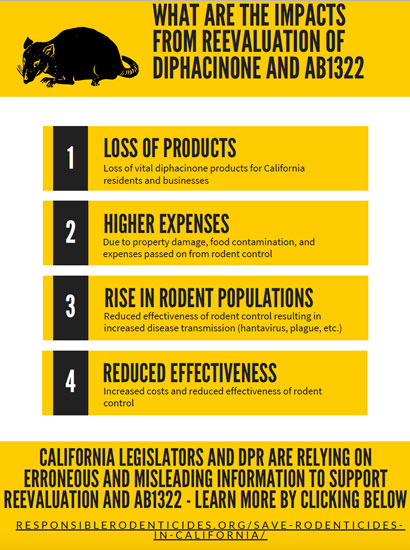 The Rodenticide Task Force launched the “Save Rodenticides in California” campaign regarding Assembly Bill 1322.
The Rodenticide Task Force launched the “Save Rodenticides in California” campaign regarding Assembly Bill 1322.
AB 1322 would ban most uses of diphacinone and would classify all diphacinone products as California Restricted Materials, which require a license to apply, limits who can distribute and sell them, and adds record-keeping requirements to each transaction. The Senate Appropriations Committee is expected to vote on the bill at the end of August.
AB 1322 would also:
- Impose a condition to complete reevaluation on not only diphacinone, but also the second-generation anticoagulant rodenticides (SGARs), by adopting “restrictions that are necessary to ensure a trend of statistically significant reductions in the mean concentration values of detectable levels of second-generation anticoagulant rodenticides and diphacinone or any of their metabolites in tested tissues of a scientifically representative sample of wildlife.”
- Redefine existing definitions of integrated pest management (IPM) in California statute by removing the use of anticoagulant rodenticides from (IPM) procedures.
“California legislators and the Department of Pesticide Regulation (DPR) are relying on erroneous and misleading information about the uses of diphacinone, and the effects of rodenticide exposure in wildlife, to support restrictions on rodenticide products containing diphacinone,” according to the Rodenticide Task Force’s website.
Residents of California can contact their senators to oppose AB 1322, before the Senate Appropriations Committee votes on the bill. The Rodenticide Task Force’s website includes a Voter Voice form to make contact faster and easier.
For more information or to sign up to receive updates, visit the Rodenticide Task Force website.

IMAGE: RODENTICIDE TASK FORCE
Leave A Comment